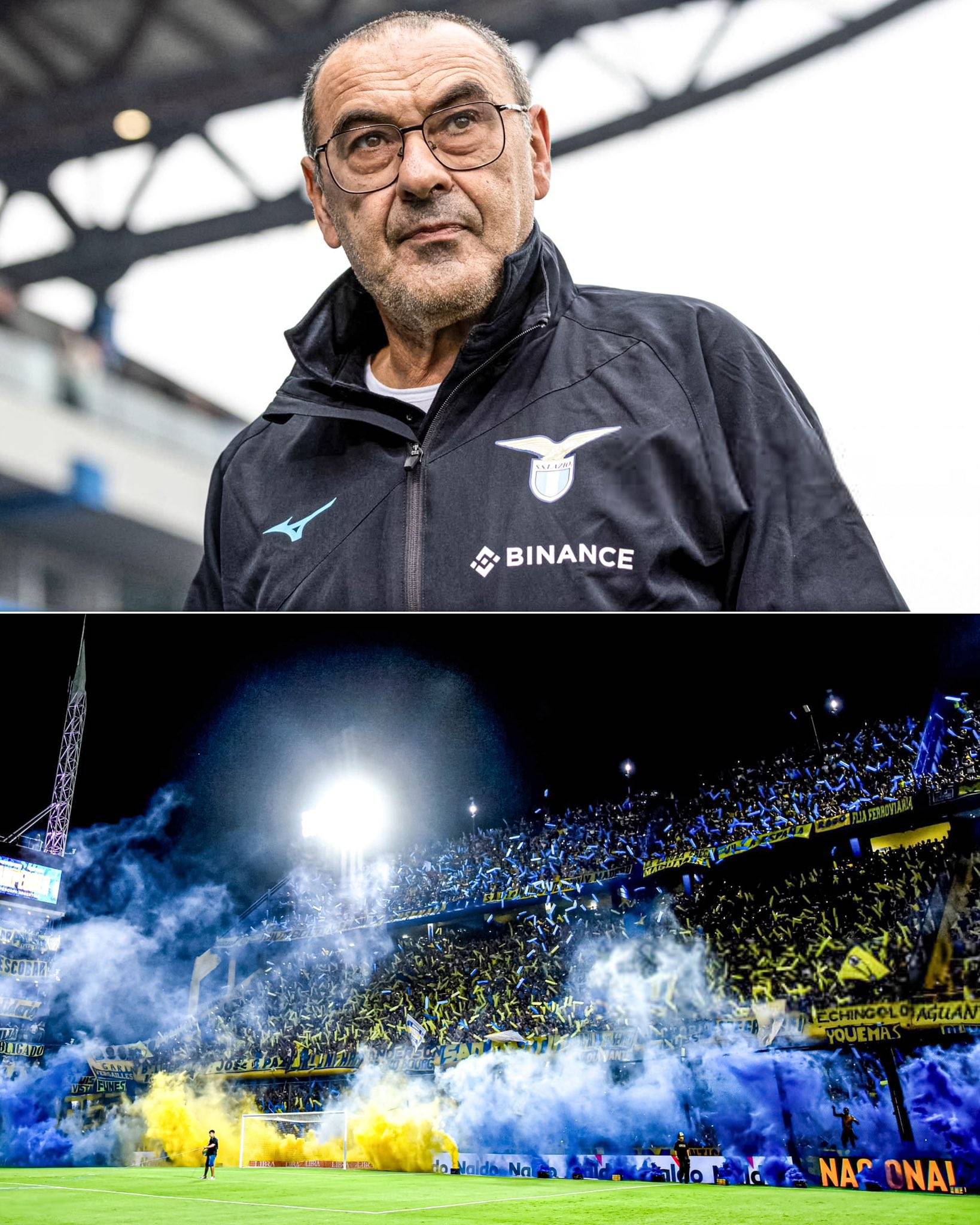Maurizio Sarri’s comment about managing Boca Juniors, calling it a "dream," has sparked considerable debate among football fans. His career trajectory—from high-profile clubs like Chelsea and Juventus to expressing interest in managing at Boca—leaves some questioning how Sarri's professional aspirations have shifted so drastically.
**Sarri’s Highs: Managing Chelsea and Juventus**
During his time at Chelsea and Juventus, Sarri was at the helm of two of Europe's most storied clubs. At Chelsea, he won the UEFA Europa League and helped the team secure a top-four Premier League finish, despite receiving criticism for his rigid playing style, "Sarriball." Moving on to Juventus, he won the Serie A title in 2020 but was dismissed after only one season due to inconsistent performances and tension with the squad.
Coaching these clubs came with immense pressure, scrutiny, and expectations of success on the European stage. Winning titles with Chelsea and Juventus put Sarri in the conversation with some of the world’s top managers, even if his tenure at both clubs wasn't universally adored. After Juventus, he moved to Lazio, another historic but smaller Italian club, where the weight of expectations wasn't as intense.
**Dreaming of Boca Juniors: A Cultural Shift**
Boca Juniors, a football powerhouse in South America, is renowned for its passionate fanbase and historic significance. However, compared to the financial and footballing clout of European giants like Chelsea or Juventus, Boca is a step down in terms of global prestige. For Sarri to now call managing Boca Juniors at the famous La Bombonera "a dream" might seem surprising, particularly for those who view South American football as inferior to the elite European leagues.
To many fans, this comment highlights a possible "downgrade" in his career path. How does a manager who was in charge of some of the biggest clubs in the world now aim for a club that doesn’t carry the same global recognition? From a European football lens, this could be seen as a step backward, especially for a coach with Sarri's résumé. The footballing cultures, the financial backing, and even the tactical styles are starkly different between European football and South American football.
**Boca Juniors’ Prestige and South American Football**
While Boca Juniors may not be on par with the economic might of Chelsea or Juventus, it remains a club of immense prestige in Argentina and South America. Boca has produced world-class players such as Diego Maradona, Carlos Tevez, and Juan Román Riquelme, and its fan culture is one of the most passionate in the world. La Bombonera, the team's iconic stadium, is renowned for its atmosphere, creating a uniquely intense football environment.
For a European manager like Sarri, this environment could be a double-edged sword. The intensity and passion that make managing Boca an attractive proposition could also be overwhelming. Managing a club in Argentina means dealing with pressure from fans and media that rivals, if not exceeds, what Sarri would have experienced in Europe, but with far fewer resources and less access to top-tier talent.
**Is It a Downgrade?**
From a European perspective, moving from Juventus and Chelsea to Boca Juniors may seem like a downgrade in terms of stature. In South America, however, managing Boca is a prestigious job that requires dealing with an unparalleled level of passion and scrutiny. For Sarri, it’s perhaps not about a "downgrade" but rather about seeking a challenge in a different footballing culture.
While Boca may not have the financial power or international clout of Chelsea or Juventus, its significance in South America cannot be understated. It could offer Sarri the chance to reinvent himself away from the commercial pressures of Europe, where managing a club like Chelsea often means balancing footballing success with corporate demands.
**What’s Driving Sarri?**
Sarri’s desire to manage Boca Juniors could stem from his love for pure football. In South America, football is a way of life, and managers can focus more on the tactical and emotional sides of the game without the overwhelming corporate influences seen at top European clubs. It’s not so much about the prestige of the job but rather the purity of the football experience.
Moreover, Sarri has always been seen as a coach who thrives when he’s given the freedom to express his tactical philosophies, as seen during his Napoli days. Boca Juniors, with its emotional connection to the game, might offer him that kind of environment.
**Conclusion**
Maurizio Sarri calling managing Boca Juniors a "dream" should not be seen simply as a downgrade but rather as a shift in priorities. While Boca doesn’t carry the same prestige as Chelsea or Juventus on the international stage, it is a club with an unmatched history and passion within South America. For Sarri, managing Boca might represent a return to the raw, emotional core of football, where he can focus on the sport rather than the corporate machine that dominates European football.
Sarri's career moves may appear to be a step down on the surface, but his ambition to manage in South America could indicate a desire for a different kind of footballing challenge—one rooted more in passion than prestige.




No comments yet
Be the first to share your thoughts!